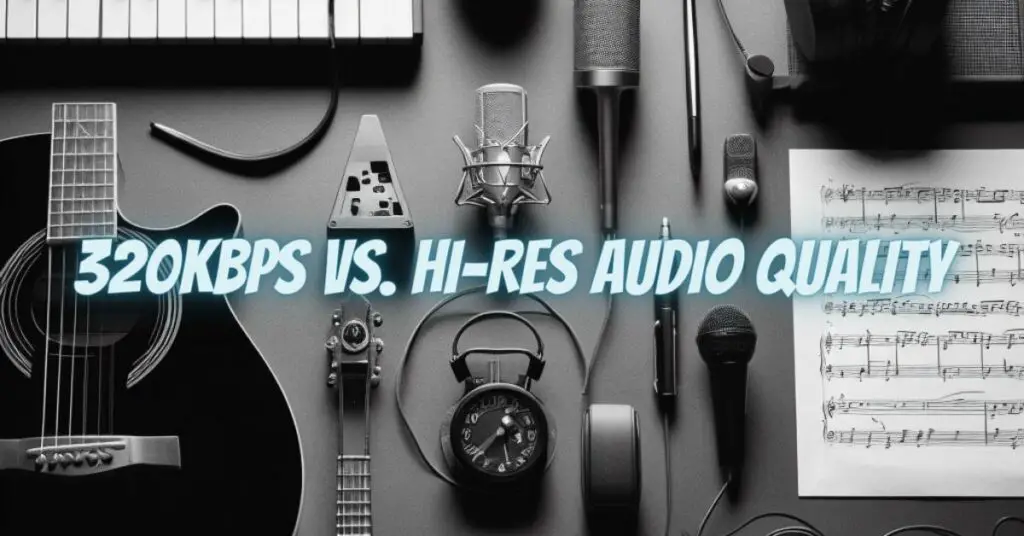The world of digital audio is a vast landscape with numerous formats and bit rates, each offering its own set of advantages and trade-offs. Among these, the debate between 320kbps and high-resolution (hi-res) audio often emerges as a central point of discussion. In this article, we will explore the differences between 320kbps and hi-res audio, consider factors that influence audio quality, and address whether one format is definitively better than the other.
Understanding Bit Rate
Bit rate is a measure of how much data is transmitted per unit of time and is usually expressed in kilobits per second (kbps) for audio files. Higher bit rates generally indicate better audio quality, as more data is used to represent the original sound. However, the perceived quality depends on a variety of factors.
320kbps Audio
- Quality and Efficiency: 320kbps is a high-quality bit rate for compressed audio formats such as MP3. It offers a balance between audio quality and file size, making it a popular choice for digital audio distribution and streaming services.
- Transparency: Many listeners may not discern any difference between 320kbps audio and higher bit rates, especially when using standard headphones or speakers. For most music genres, 320kbps audio is often described as “transparent,” meaning that the loss in quality is minimal and not easily noticeable.
- Storage and Bandwidth: 320kbps audio files are relatively small, making them practical for storage and streaming. This bit rate strikes a balance between conserving storage space and delivering enjoyable audio quality.
High-Resolution (Hi-Res) Audio
- Higher Bit Rates: Hi-res audio formats, such as FLAC and DSD, use bit rates that surpass 320kbps. These formats capture a more extensive dynamic range, resulting in improved audio quality and the potential to reproduce more subtle nuances in the music.
- Lossless Compression: Hi-res formats often use lossless compression techniques, preserving the original audio data while still reducing file size. This ensures the highest audio quality without sacrificing data.
- Audiophile Appeal: Hi-res audio is particularly favored by audiophiles who prioritize pristine sound quality. It can reproduce a wide range of frequencies and dynamic contrasts, providing a listening experience that closely mirrors the original recording.
Factors Influencing Audio Quality
The perceived quality of audio depends on several factors:
- Listener Preferences: Personal taste and the ability to discern audio nuances vary among individuals. Some listeners may prioritize the clarity of hi-res audio, while others may find 320kbps audio more than satisfactory.
- Equipment Quality: The quality of playback equipment, such as headphones, speakers, and digital-to-analog converters (DACs), significantly influences audio quality. High-end components can extract the most from high-resolution audio formats.
- Source Material: The quality of the original recording, whether analog or digital, greatly influences the final sound. Well-recorded music will shine on both 320kbps and hi-res formats.
The question of whether 320kbps is better than hi-res audio is subjective and context-dependent. The choice depends on individual preferences, the quality of audio equipment, and the context in which you are listening.
320kbps audio provides a satisfying listening experience that is practical for storage and streaming. On the other hand, hi-res audio formats offer unparalleled audio quality for those who demand the utmost fidelity and nuance in their music. Both formats have their place in the world of digital audio, and the “better” option ultimately depends on your unique listening priorities and the equipment at your disposal.
In summary, whether you prefer the convenience and balance of 320kbps audio or the pristine clarity of hi-res formats, the most important aspect of music is the connection it creates and the joy it brings to your life. Ultimately, the “better” format is the one that resonates most deeply with your love of music.

